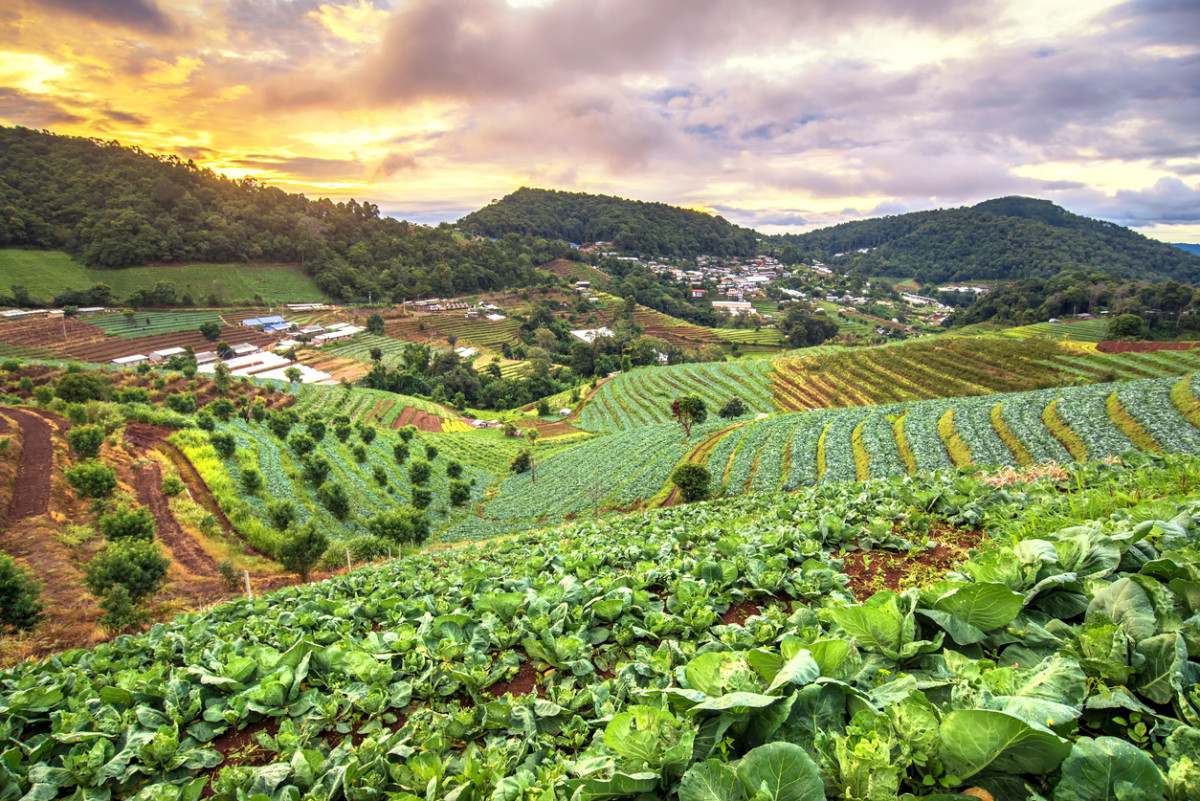Over the past decade, farmers have been forced off their lands in India to make way for industrial agriculture. The result has been a food crisis that has led to rising malnutrition and obesity in India’s children. But sustainable agriculture is not just about feeding a billion more people. It is about ensuring that this population can live healthy lives, too.

Sustainable agriculture is the future of farming. The world needs more sustainable food sources and farming systems to feed a growing population. Our current farming system is unsustainable and unsustainable. We need a new way of producing food and creating economic opportunities for people living in rural communities. Sustainable agriculture is the future of farming. It’s based on regenerative principles that are sustainable and efficient and create high-quality jobs for farmers. We need to build a sustainable agriculture system. To do this, we must improve our food production while protecting natural resources, improving our human-animal bond, and building resilience in our farming systems.
What is sustainable agriculture?
Sustainable agriculture is a new approach to farming that addresses issues such as environmental degradation, food security, and climate change. The idea is to move away from a farming model based on monoculture and industrial production to one that uses multiple crops, plants, animals, and techniques to provide food. Sustainable agriculture is often described as “sustainable food, sustainable farming, sustainable development.” There is no one-size-fits-all solution for sustainable agriculture. The key is to adopt the solutions that work best for your situation.
The benefits of sustainable agriculture
It’s no secret that modern farming practices are unsustainable. They require lots of water, fertilizer, and chemicals to produce food. However, we’re still looking to replace these unsustainable practices with sustainable ones. Luckily for us, the global population is rapidly growing. So, there is a need to grow more food, but we must do so more sustainably. Today, most food is grown on large, industrialized farms.
These farms are often located in remote areas, far from local populations and the needed services. Farmers use fertilizer, pesticides, and other chemicals to maximize food production. But this isn’t sustainable, requiring copious amounts of water and fertilizers.
The impact of sustainable agriculture
According to the United Nations Food and Agriculture Organization, the world’s population will grow from 7.5 billion today to nearly 9 billion by 2050. To feed this growing population, we need to find more sustainable ways of producing food and creating economic opportunities for farmers living in rural communities. Sustainable agriculture is the future of farming. The world needs more sustainable food sources and farming systems to feed a growing population.
The three pillars of sustainable agriculture
Sustainable agriculture is the future of farming. It is the only way to feed the world and protect our environment. To create a sustainable agricultural system, we need to:
1. Use less land for food production
2. Produce more nutritious food
3. Use fewer resources and create less waste
We must move away from traditional farming methods and use more sustainable practices.
Why is sustainable agriculture important?
We’re currently at a critical moment in history. The world population is growing at an unprecedented rate, and we need to find ways of feeding everyone. Farming is a significant contributor to climate change, causing severe environmental damage. We need to change the way we produce our food. This is a huge problem, so I’m dedicated to changing how the world makes food. Sustainable farming is the solution to all of these issues. It’s the best way to grow food and create economic opportunities in rural communities.
How can we create sustainable agriculture?
Sustainable agriculture is about making a profit without ruining the environment or harming the workers’ health. It’s about creating a viable, economically profitable model for small farms. A great example is permaculture, a farming system based on ecological design principles. Permaculture creates systems resilient to environmental change and more productive than conventional farming. Today, many examples of successful farmers practicing sustainable agriculture include Joel Salatin, Joel Salatin’s Polyface Farm, and Rodale Institute. These farms have the following characteristics:
Sustainability – These farms have created farming models that are more sustainable than the ones we currently use. They’re economically viable, resilient to environmental change, and able to create a stable and healthy livelihood for the workers.
Resilience – These farms can adjust to environmental changes and produce a healthy harvest.
Productivity – These farms are more productive than conventional farms.
Frequently asked questions about sustainable agriculture
Q: How do you think farmers can benefit from using sustainable practices?
A: Farmers need to know how to make the most of their land and what they have. If we don’t use sustainable farming practices, our land will suffer. Sustainable farming practices allow farmers to farm and live off the ground rather than farm and sell off the land.
Q: What are some examples of sustainable agricultural practices?
A: Farmers need to know how to use compost in the soil. Composting allows farmers to reuse waste to produce healthy and nutritious food for themselves and their animals. It also helps to keep their land clean by preventing soil erosion.
Q: Do you have any tips for people who want to learn more about sustainable agriculture?
A: One way to get more information is to visit farmers’ markets. They have a lot of fresh food not always available in grocery stores.
Myths about sustainable agriculture
1. Organic farming is unsustainable because it cannot feed the world.
2. The best farmers are the ones who use the most land.
3. The most sustainable farmers are those with the least land.
Conclusion
The future of farming is going to be about sustainability. As we know, the world’s population is expanding, and we will need to feed everyone. To do that, we will have to be more efficient than we have been. We’re going to have to use less water and energy, and we’re going to have to produce more food. Sustainable agriculture practices are the only way to achieve this. It will take time, but it’s a worthy goal.





















